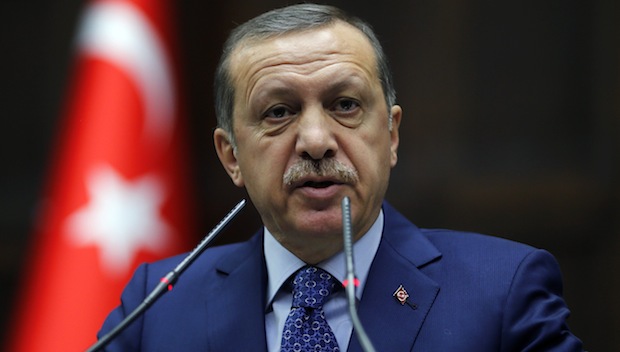According to opinion polls, the most likely outcome in the local elections in Turkey in less than two weeks’ time is that Recep Tayyip Erdoğan and his party will deal a heavy blow to the opposition and disappoint those who hope to oust him from politics.
The other possible scenario is that Erdoğan will try to position himself as a candidate for the presidency in the June elections, disrupting any attempt to deprive him of this opportunity presented to him on a silver platter by his colleague, President Abdullah Gül, in 2007.
Erdoğan accepts that the local elections have turned into a grueling confrontation between his party on the one side and opposition political forces and followers of Fethullah Gülen on the other, who have united against the prime minister to weaken him and oust him from government.
Erdoğan refuses to talk about what is going to happen in the post-election period, ignoring the question which follows him everywhere regarding his intention to run for the presidency and be the man in charge during the celebrations of the 100th anniversary of the Turkish Republic’s founding.
Erdoğan has turned the public squares of the more than 40 cities he has visited in recent weeks into arenas for open political confrontation. However, this will not prevent him from declaring his intention to move into the Çankaya Presidential Palace.
Erdoğan wanted to become Turkey’s president in 2007, but pressure from within his party—as well as other political circumstances—prevented him from achieving that dream. It is likely that his hopes will be rekindled by the election results, and with the disclosure of the number of votes won by the Justice and Development Party (AKP), which most opinion polls agree will be higher in comparison to the results of four years ago—something never achieved by any party in Turkish political history to date.
Recep Tayyip Erdoğan may have failed to create an American-style presidential system where he would be the most powerful figure among the executive and legislative authorities, but every Turkish citizen is convinced that the March 30 election results will be the card that Erdoğan will play against the AKP leadership to stop them demanding he make concessions or drop his campaign for the Turkish presidency.
From the start of April, Erdoğan will devote himself to becoming the leading candidate, and will no longer accept advice from outside parties in light of all his efforts to secure the presidency, after disappointing those who tried to politically destroy him following the crisis of last September.
What is certain today is that Erdoğan, who has led the municipal elections campaign for the AKP, will keep moving from city to city and from one festival to another, day and night, to protect his party’s position and bring the majority of the Turkish public onto his side. He will remind the AKP leadership, most prominently Abdullah Gül himself, of his “right” to the presidency, refusing to back down in the face of attempts to persuade him to abandon this dream. He knows that this is his only opportunity to stay in the leading position in the AKP and the government, following amendments to the party’s internal regulations.
Erdoğan is well aware that the upcoming presidential poll will be a direct election, with Turkish voters selecting the president, unlike previous years when the head of state was selected by parliament.
The possibility of a confrontation over the presidency is now unlikely in light of developments on Turkey’s political scene, and Gül would certainly be happy for Erdoğan—who stood by him throughout his own presidency—to take over the presidential mantle.
Gül will not stand against Erdoğan, though opponents of the current Turkish prime minister may try to convince Gül to put himself forward as the stronger candidate, competing against his ally and partner after a quarter of a century of joint political work.
Erdoğan’s political options are limited. After the announcement of the election results, he will either pack his bags and prepare for retirement after having stood down within the year, or he will announce his desire to remain at the heart of national politics and finish what he has started, but from the Çankaya Presidential Palace. The latter option is the most likely by any measure.
The international community must now follow up developments inside the AKP, not to make sure of Erdoğan’s chances of being selected as president, but to try to ascertain the details of the competition for the leadership of the party. Will it be a handover from Erdoğan to Gül, or will events conspire to block Gül, who knows he would be expected to complete the work Erdoğan started in settling scores with opposition parties inside and outside the country?
Starting in April, Erdoğan will have the right to say or do what he likes. He is the one who shouldered most of the burden and received the most painful blows. Victory will almost certainly go to the AKP, but it is the voting that will directly address whether Erdoğan stays or goes.
Judging from the current political scene, Erdoğan and the AKP have emerged stronger from this confrontation. He has already blocked plans to introduce specific qualifications for the new Turkish president which aim to create a presidential election crisis along the lines of the 2007 crisis.
He has stressed that the circumstances today are different from those of seven years ago, but the strongest message to Erdoğan must be a reminder that it is not politically viable to put your hand in the fire to check if it is hot.
